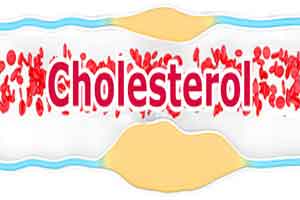- Home
- Medical news & Guidelines
- Anesthesiology
- Cardiology and CTVS
- Critical Care
- Dentistry
- Dermatology
- Diabetes and Endocrinology
- ENT
- Gastroenterology
- Medicine
- Nephrology
- Neurology
- Obstretics-Gynaecology
- Oncology
- Ophthalmology
- Orthopaedics
- Pediatrics-Neonatology
- Psychiatry
- Pulmonology
- Radiology
- Surgery
- Urology
- Laboratory Medicine
- Diet
- Nursing
- Paramedical
- Physiotherapy
- Health news
- Fact Check
- Bone Health Fact Check
- Brain Health Fact Check
- Cancer Related Fact Check
- Child Care Fact Check
- Dental and oral health fact check
- Diabetes and metabolic health fact check
- Diet and Nutrition Fact Check
- Eye and ENT Care Fact Check
- Fitness fact check
- Gut health fact check
- Heart health fact check
- Kidney health fact check
- Medical education fact check
- Men's health fact check
- Respiratory fact check
- Skin and hair care fact check
- Vaccine and Immunization fact check
- Women's health fact check
- AYUSH
- State News
- Andaman and Nicobar Islands
- Andhra Pradesh
- Arunachal Pradesh
- Assam
- Bihar
- Chandigarh
- Chattisgarh
- Dadra and Nagar Haveli
- Daman and Diu
- Delhi
- Goa
- Gujarat
- Haryana
- Himachal Pradesh
- Jammu & Kashmir
- Jharkhand
- Karnataka
- Kerala
- Ladakh
- Lakshadweep
- Madhya Pradesh
- Maharashtra
- Manipur
- Meghalaya
- Mizoram
- Nagaland
- Odisha
- Puducherry
- Punjab
- Rajasthan
- Sikkim
- Tamil Nadu
- Telangana
- Tripura
- Uttar Pradesh
- Uttrakhand
- West Bengal
- Medical Education
- Industry
Young adults with high cholesterol may need statins: Study

Toronto: Millions of people globally take statins to help lower their cholesterol level. Canadian researchers have now developed a new approach to determine which individuals should receive such important medications to prevent heart disease, especially in younger people.
“We should not only be considering who is at risk of heart disease but, more importantly, who would benefit from these medications based on randomised clinical trial data,” explained lead author Dr George Thanassoulis, associate professor in medicine at Mc Gill University.
For example, younger patients who have high cholesterol are frequently considered too young to be at risk of heart attack in the short term.
“But our analysis shows that they would benefit from treatment, even in the short term, and therefore should be eligible for statin treatment,” added Dr Thanassoulis, also from the Research Institute of the McGill University Health Centre (RI-MUHC) in Montreal.
Currently statins are prescribed to patients based on their future risk of cardiovascular disease - mainly driven by age - which excludes many individuals who may benefit from them.
The team performed their study using data from 2,134 participants from the National Health and Nutrition Examination Survey representing 71.8 million Americans potentially eligible for statins.
Two approaches for statin eligibility were compared: a 10-year risk based approach - currently in use - and an individualised benefit approach.
The latter method of determining who should receive statins was found to produce greater eligibility.
“Using a benefit-based approach, we identified 9.5 million lower-risk Americans not currently eligible for statin treatment, who had the same or greater expected benefit from statins as higher-risk individuals," noted Dr Thanassoulis in a paper published in the journal Circulation.
Targeting statin treatment to this group would be expected to prevent an additional 266,000 heart attacks and strokes over 10 years,” he added.
The team is now developing a Web interface to extend the use of their calculation model to physicians.
“We should not only be considering who is at risk of heart disease but, more importantly, who would benefit from these medications based on randomised clinical trial data,” explained lead author Dr George Thanassoulis, associate professor in medicine at Mc Gill University.
For example, younger patients who have high cholesterol are frequently considered too young to be at risk of heart attack in the short term.
“But our analysis shows that they would benefit from treatment, even in the short term, and therefore should be eligible for statin treatment,” added Dr Thanassoulis, also from the Research Institute of the McGill University Health Centre (RI-MUHC) in Montreal.
Currently statins are prescribed to patients based on their future risk of cardiovascular disease - mainly driven by age - which excludes many individuals who may benefit from them.
The team performed their study using data from 2,134 participants from the National Health and Nutrition Examination Survey representing 71.8 million Americans potentially eligible for statins.
Two approaches for statin eligibility were compared: a 10-year risk based approach - currently in use - and an individualised benefit approach.
The latter method of determining who should receive statins was found to produce greater eligibility.
“Using a benefit-based approach, we identified 9.5 million lower-risk Americans not currently eligible for statin treatment, who had the same or greater expected benefit from statins as higher-risk individuals," noted Dr Thanassoulis in a paper published in the journal Circulation.
Targeting statin treatment to this group would be expected to prevent an additional 266,000 heart attacks and strokes over 10 years,” he added.
The team is now developing a Web interface to extend the use of their calculation model to physicians.
Next Story


